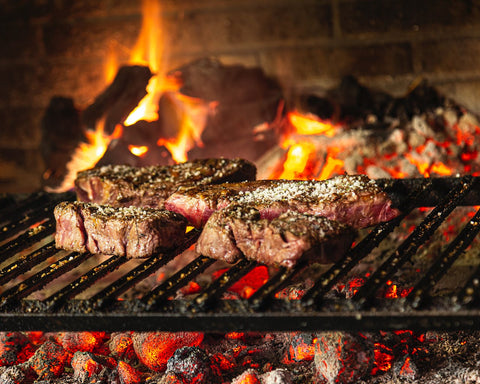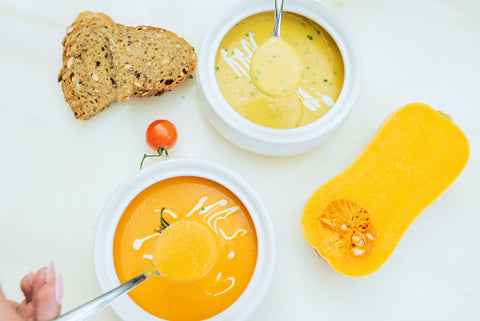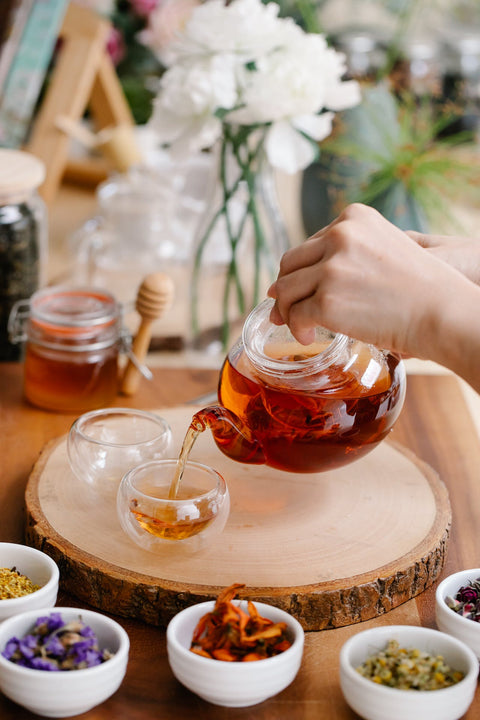There's an undeniable magic in the air when you fire up the grill, an irresistible sizzle that calls out to the senses. But the real secret to that mouthwatering aroma, the one that makes your taste buds tingle in anticipation, lies in the BBQ rub recipe you use. As a grilling enthusiast, I can attest to the transformative power of a well-crafted BBQ rub. It can take your grilling game from good to exceptional, creating dishes that are bursting with flavor and savor.

BBQ rubs are a mix of spices and herbs that infuse your meat with a delicious, savory flavor before it hits the grill. These blends can range from sweet to spicy, tangy to smoky, and everything in between. The beauty of a BBQ rub recipe lies in its adaptability. You can tailor it to suit your palate, creating a unique flavor profile that elevates your grilling experience.
So, whether you're a seasoned pitmaster or a novice griller, this ultimate guide to BBQ rub recipes is designed to help you unlock new flavors and ignite your culinary creativity.
The Science Behind BBQ Rubs
The science behind BBQ rubs is fascinating. When you apply a rub to your meat and heat it on the grill, a series of chemical reactions take place. These reactions transform the raw ingredients of the rub into complex flavor compounds, providing your meat with its unique taste and aroma.
One key reaction involved in this process is the Maillard reaction. Named after the French chemist who first described it, the Maillard reaction occurs when amino acids and reducing sugars in the meat and rub interact under heat. This reaction produces hundreds of flavor compounds, contributing to the rich, savory taste and appealing brown color of grilled meat
Besides the Maillard reaction, caramelization also plays a crucial role in the science of BBQ rubs. When the sugars in the rub are exposed to heat, they caramelize, creating a sweet, slightly bitter flavor that complements the savory taste of the meat. This caramelization also forms a crust on the meat, which helps to lock in the juices and keep it moist and tender.
Understanding the science behind BBQ rubs can enhance your grilling experience, allowing you to experiment with different ingredients and techniques to create your own signature BBQ rub recipe.
Creating Your First BBQ Rub Recipe
Creating your first BBQ rub recipe can be a thrilling adventure. You get to play around with different spices and herbs, discovering new flavor combinations that delight your palate. Here's a simple guideline to help you create your first BBQ rub recipe.
Begin with a base of sugar and salt. The sugar helps with caramelization, while the salt brings out the natural flavors of the meat. Next, add some chili powder for a bit of heat and paprika for smokiness. Then, experiment with different spices such as cumin, garlic powder, onion powder, black pepper, and cayenne pepper.
Remember, creating a BBQ rub is all about balance. You want to create a blend that enhances the flavor of the meat without overpowering it. So, start with small quantities of each spice and herb, gradually adding more until you achieve the desired flavor.
Finally, remember that the best BBQ rub recipe is the one that suits your taste buds. So, don't be afraid to experiment and tweak the recipe until you find your perfect blend.
How to Apply BBQ Rubs
Applying BBQ rubs is a crucial step in the grilling process. The way you apply the rub can significantly affect the flavor and texture of your grilled dishes.
Start by patting your meat dry with a paper towel. This removes any excess moisture, allowing the rub to adhere better to the meat. Next, generously apply the BBQ rub to the meat, making sure to cover all sides. Don't be shy with the rub; the more you use, the more flavorful your meat will be.
After applying the rub, let the meat rest for a while. This allows the flavors to penetrate deeply into the meat, enhancing its taste. If possible, let the meat rest in the fridge overnight. However, if you're pressed for time, even a few hours of resting can make a significant difference.
Finally, remember to apply a fresh coat of rub just before you put the meat on the grill. This ensures that your meat has a rich, robust flavor, making your grilling experience all the more enjoyable.
Unique and Flavorful BBQ Rub Recipes
There's a world of unique and flavorful BBQ rub recipes waiting to be discovered. These recipes offer a variety of tastes and aromas, allowing you to explore new culinary horizons.
For a sweet and smoky flavor, try a Honey BBQ Rub. This rub combines the sweetness of honey with the smokiness of paprika and the heat of chili powder, creating a tantalizing blend that's perfect for chicken and pork.
If you prefer a spicier kick, a Chipotle BBQ Rub might be just what you need. This rub pairs the smoky heat of chipotle peppers with the earthiness of cumin and the sweetness of brown sugar, creating a bold, fiery flavor that's excellent with beef and ribs.
For a unique twist, consider a Coffee BBQ Rub. This rub combines the robust flavor of coffee with the sweetness of brown sugar and the heat of chili powder, resulting in a rich, complex taste that's ideal for beef and lamb.
These are just a few examples of the unique and flavorful BBQ rub recipes you can explore. With a bit of creativity and experimentation, you can create your own signature rubs that dazzle your taste buds and elevate your grilling game.
Professional Tips for Mastering BBQ Seasoning
Mastering BBQ seasoning requires some practice, but with a few professional tips, you can create flavorful, mouthwatering dishes every time.
- First, always use fresh spices and herbs. Fresh ingredients have a stronger, more vibrant flavor, enhancing the taste of your BBQ rub.
- Second, grind your spices just before you use them. This releases their essential oils, providing a richer, fuller flavor.
- Third, adjust your BBQ rub recipe to suit the type of meat you're grilling. Different meats have different flavor profiles, so you'll need to tweak your rub accordingly.
- Fourth, remember to apply the rub generously. A good rub should coat the meat thoroughly, infusing it with flavor and aiding in caramelization.
- Finally, let your meat rest after applying the rub. This allows the flavors to penetrate deeply into the meat, resulting in a tastier dish.
With these professional tips, you can master BBQ seasoning and create dishes that are a hit at every BBQ.
Shopping for BBQ Rubs vs. Making Your Own
When it comes to BBQ rubs, you have two options: you can buy them from the store, or you can make your own. Both options have their pros and cons.
Shopping for BBQ rubs is convenient. You can find a variety of pre-made rubs in the store, each offering a unique blend of flavors. These rubs are excellent if you're short on time or if you're new to grilling and aren't sure where to start.
However, making your own BBQ rub offers more flexibility. You can adjust the ingredients to suit your taste, creating a custom blend that's just right for you. Plus, making your own rub can be more cost-effective, especially if you grill frequently.
Personally, I enjoy making my own BBQ rubs. It allows me to experiment with different spices and herbs, unlocking new flavors and refining my grilling skills. However, I also appreciate the convenience of store-bought rubs, especially when I'm in a hurry.
Remember, the best BBQ rub recipe is the one that suits your taste buds. So, don't be afraid to experiment and tweak the recipes until you find your perfect blend. Happy grilling!



